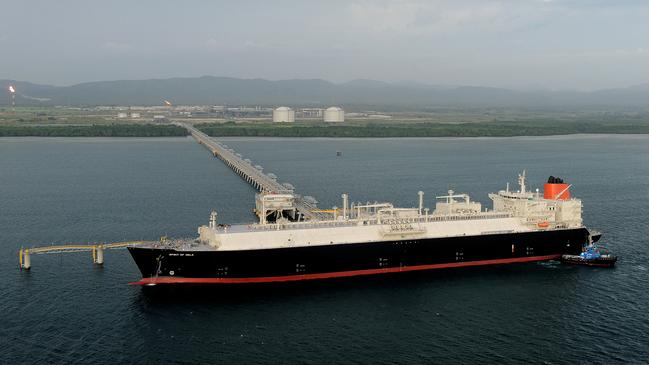
Santos may only now be releasing the details of a $22bn merger proposal it put to Oil Search three weeks ago, but talks are understood to have stretched as far back as 2019.
Speculation first emerged in 2019 that Santos was circling Oil Search after fending off suitor Harbour Energy, as revealed by DataRoom at the time.
This was following the departure of former boss Peter Botten and amid political uncertainty in Papua New Guinea where the majority of its oil and gas assets are located, and this had been weighing on its share price.
Talk of interest in Oil Search for a takeover by Santos started happening that year in May at the annual Australian Petroleum Production Exploration Association (APPEA) oil and gas conference in Brisbane. Investment bankers were said to have pitch books involving a deal between Santos and Oil Search.
Analysts have always believed that Santos and Woodside Petroleum are the most likely suitors of Oil Search and a tie-up makes sense, creating an industry champion.
Three years ago, relations had cooled between Woodside and Oil Search after Woodside boss Peter Coleman made an $11.6bn play for the PNG-focused Oil Search in 2015 that was swiftly rejected.
In 2019, some thought it may have been too early for Santos to make its move, but most did not doubt the company would find Oil Search attractive at a time it was searching for more gas reserves.
One of the deterrents for a deal then by Santos was thought to be a final investment decision on a $US13bn ($17.7bn) PNG LNG expansion project.
The latest approach comes after six months of talks, as revealed by DataRoom on Tuesday, dating back to before Christmas.
At that time, Santos boss Kevin Gallagher was understood to have contacted Oil Search chief executive Keiran Wulff about its interest in a deal.
Last year, Oil Search came under pressure when the oil price plunged to about $US45 per barrel on the back of the global pandemic, prompting the interest from Santos.
The talks have been on and off for six months.
However, Oil Search is thought to have not shown interest in a merger with Santos, which is understood to have been expressed in meetings with its rival.
But a formal offer in writing only came on June 25, involving a merger where Oil Search shareholders own 37 per cent of the merged entity and Santos shareholders owning 63 per cent of the merged entity.
It would see Mr Gallagher become chief executive of the overall company with the chairman position not yet determined.
A bigger balance sheet offers better opportunities in projects further down the track.
On Tuesday, the situation started playing out publicly, with Oil Search telling the market that it had fielded an offer that was rebuffed.
Minutes later, Santos released full details of its merger proposal lobbed on June 25.
Santos told the market that Oil Search shareholders would receive 0.589 new Santos shares for every Oil Search share held.
The ownership ratio implied a transaction price of $4.25 per Oil Search share, based on a closing price of June 24.
This represented a 12.3 per cent premium to the Oil Search closing price on June 24 of $3.78 and a 9.8 per cent premium to a block trade sale price by the Abu Dhabi government-backed Mubadala of $3.865 when it offloaded a 4.5 per cent interest in the business last month.
Santos was sent a letter by Oil Search on July 9 indicating that it took the view that the proposal did not offer adequate value for Oil Search.
Already, the companies are partners on their PNG LNG venture.
It is understood that working on the plan for Santos has been investment bank Citi and its Adviser J.B North & Co.
Oil Search has Macquarie Capital, Goldman Sachs and advisory firm Rothschild offering defence advice.
Santos owns about 13 per cent of PNG LNG while the bulk of its portfolio comprises valuable oil and gas assets throughout Australia.
Oil Search owns about 30 per cent of PNG LNG as well as the development Papua LNG.
An industry giant can better finance and grow the assets it owns.
The merger plan comes amid a growing trend towards consolidation in the industry amid a major mergers and acquisitions boom in a low interest rate environment.
Oil Search’s chief executive Keiran Wulff resigned on Monday amid behavioural complaints from staff and a long-term health issue.



